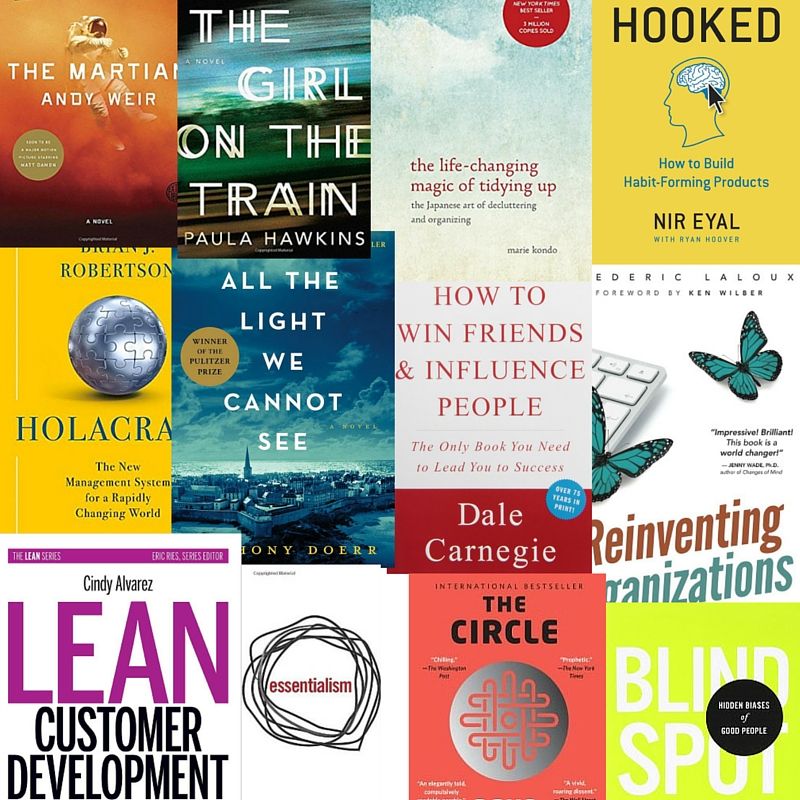Workplace of the future - Page 11

Hi there! This is an older post that we’ve kept around for transparency but that means that sometimes the information is no longer accurate. Head to our homepage to view our most recent posts. Buffer is a fully distributed team, which means that our teammates work from anywhere! Our official headquarters is in California, but we don’t have an office anywhere anymore. Although this is rare, it seems to be a growing trend. As we grow, it has been great to see how larger remote companies such as

Hi there! This is an older post that we’ve kept around for transparency but that means that sometimes the information is no longer accurate. Something a lot of people tend to be surprised about when they join the Buffer team (or even speak to a Buffer teammate for an extended time) is how specific, deliberate, and careful we are with the language we use. There are literally no harsh words at Buffer, or at least none that I’ve ever heard. No brusquely worded requests, no passive aggressive note

Heads up! This is an older post that references some outdated processes at Buffer, specifically the “Buffer bootcamp” Feel free to see the latest information here , including all the reasons why we retired this concept! We’re Retiring The ‘Buffer Bootcamp’ Period For New Teammates – Here’s Why Editor’s Note: When someone new joins us at Buffer, they go through the Buffer Bootcamp [https://buffer.com/resources/inside-b

One of the coolest perks we have at Buffer team is that all team members (and their family members!) get a free Kindle and all the Kindle books they want to read—any book, anytime, no questions asked. As a result, we end up reading a wide assortment of stuff—from popular and critically-acclaimed fiction to resources that help us build better products or improve ourselves in some way. As a team, we read 1074 books in 2015—a 63.7% increase from last year’s total of 656 books. (Of course, the te

The Buffer team is more than 65 people right now, which means our startup has more than doubled in size this year. It’s been an incredibly exciting adventure! There are a lot of big factors for this growth, as well as many changes for all of us that have gone along with it. We recently sat down for a video chat with Buffer: Open’s Content Crafter, Courtney, to talk about why and how we’ve grown so much this year. She asked us some great and tough questions about thi

Hi there! This is an out of date post that we’ve kept around for transparency purposes. Go here to view the latest version of this post. When I first started working on Buffer and learning on sites like TechCrunch about the kinds of amazing perks and benefits some startups provide, I thought unlimited vacation time sounded like such a great idea. Giving everyone the opportunity to unplug w

Hi there! This is an out of date post that we’ve kept around for transparency purposes. Go here to view the latest version of this post. What job perk could possibly be better than unlimited paid vacation days? Just picture the perfect work/life balance , the quality time you’d spend with family and friends

I’ve been a college basketball fan for as long as I can remember. Sports teams are like any other organization: They strive to organize individuals to accomplish shared challenges and goals. As a Michigan Wolverines fan, I’m continually inspired by how Michigan’s coach, John Beilein , accomplishes these goals. Beilein is the only active collegia

Working on making Buffer an inclusive place where all kinds of people feel they belong and thrive is one of my favorite things. It’s a unique time to be working on diversity goals at a tech startup . On the one hand, there is quite a bit of work to do to make the strides we’d all

Of all the things that have been known to keep me awake at night , one of the repeat offenders is thinking of times when I’ve said the totally wrong thing to a person. That embarrassment of putting my foot in my mouth or just rubbing someone the wrong way tends to linger long past the initial moment. Luckily, technology is working on making these sleepless nights a thing of the past! I’m always on the lookout for writing tools [https://blog.buffera

A while back Danielle Morill asked this question on Twitter: How many startups provide a spreadsheet explaining exactly what would happen to your options given several possible outcomes for the company — Danielle Morrill (@DanielleMorrill) May 13, 2015 Explaining equity is something we try to do as best as we can at Buffer, which Joel shared in his reply. A big learning we’ve had as we’ve added team members is that understanding stock options and putting them into context is not very easy.

When people learn about our devotion to transparency at Buffer, there tends to be one big question that looms large. Here’s the gist of it: “Transparency seems like a great policy when things are going great. But what about when they’re not?” Ed Fry summed up this often-asked question quite perfectly during an “Ask Me Anything” session [http://inbound.org/discussion/view/we-make-run-and-grow-buffer-ask-us-anyth

What motivates you to do your best work ? In an ideal world, most of us want more from our jobs than just a paycheck. We want things like work satisfaction, a connection to our coworkers and the opportunity to make a difference. What can give us the kind of feeling

Self-management was a bold and unique experience that we’re glad to have tried at Buffer. We learned a lot! Here are some of our self-management lessons as well as our current approach with natural hierarchy. When I got my first job, it never occurred to me that there was more than one way to work. You went to an office, followed directions from a boss for 8-ish hours, and then went home. That’s not quite how Buffer does things. During the time I’ve been lucky enough to be on board, we’ve ex

Buffer hit a new milestone recently, but it wasn’t a metric like annual recurring revenue, total users or cash in the bank. In fact, this one is more of a philosophical milestone: We closed down our office. Now, since our startup operates with a fully distributed team, it might seem a bit odd that we ever had an office to begin with. But for a variety of reasons, many distributed startups still have a physical office: Automattic, GitHub and Basecamp are a few examples. Here’s how we came to

“Perhaps the CEO’s most important operational responsibility is designing and implementing the communication architecture for her company.” — Ben Horowitz Buffer has recently grown to more than 50 people during our fastest 2 months of growth ever. I’ve found that a lot changes when you grow to this size, and any time the team grows quickly. There are a bunch of challenges and it’s also invigorating. It might be the most exciting and toughest phase of build

One of the first blog posts I ever wrote at Buffer is this beginner’s guide to SEO. When published originally, it had the title “Beginner’s Guide to SEO Even Your Mom Can Understand.” Holy casual sexism! When I think of all the amazing women and moms I know in search optimization and search marketing (here’s a primer on just a few), I am still super embarrassed to have made this giant mistake even nearly 2 years later. I’d like to think I and the whole team at Buffer have come a long way sinc

It seems you can learn a lot about someone by looking at their phone: the apps they use, the folders they create, and the pictures they’ve added. We’re excited to share a glimpse into our phones (and our lives!) here at the Buffer team. A lot of what you might see here are some of the tools we use at Buffer like Hipchat, Trello, UP, and of course the Buffer app itself. A few other themes that pop up: Lots of great social media apps and tools and many apps focused on self-improvements like medi

If it weren’t for online tools, there’s no way we could do what we do at Buffer. (OK, technically Buffer wouldn’t exist either, itself being a suite of online tools … but you get what I mean.) The power to gather our remote, spread-out-all-over-the-world team to talk face-to-face, discuss what we’re working on and connect with our community is incredible, and we love sharing about the tools that make it possible. Previously on the blog we’ve discussed some of the tools that connect us acr

Creating company culture and company values isn’t a static exercise—it’s a constant evolution. Lately we’ve been excited to begin growing the Buffer marketing team (see the roles we have in mind!). With this growth comes the great opportunity to share with new teammates how we currently think about marketing at Buffer. And what we found in thinking ahead to these great conversations is that our understanding of Buffer marketing is rather quite implicit. As never larger than a team of three, w

What does it mean to have a “startup mindset”? We’ve always tried to offer as much insight as we can into how we hire at Buffer. With Buffer’s core value of transparency, it feels like the right thing to do. In the past, we’ve often shared this diagram with teammates working in hiring and with potential candidates, showing the four main components that we’ve grown to believe make for a great fit at our startup. Lately we’ve been giving the “strong startup mindset biased toward action” quadran

We’re always working to make Buffer better—whether it’s through big new features like Buffer for Video or smaller changes to existing features. Our customer development process is so important no matter the size of the change. In this post, I would love to share an improvement that we made to the Feeds feature in Buffer and how it happened based directly on feedback from you, our awesome customers. Digging into our Feeds feature We recently made an exciting move towards more structure at Buf

Sometimes people ask us: “Do you think there are any downsides of being so transparent in the way that Buffer is?” Usually, I can only think of the amazing things that have happened to us through being transparent and open. Recently, however, there was one learning that taught us that transparency isn’t a blanket solution for absolutely everything. For a few months we experimented with completely transparent feedback—even for those things that might be potentially difficult to hear or say, as

In Buffer’s early days, the Lean Startup approach had a big influence on how Buffer took off. Joel blogged about this in 2011: “I reached something that would be truly valuable for people. It also taught me the value of customer development: to take advantage of those emails coming in by asking people questions.” Much of this mentality is reflected in the Buffer values today! Here is another illustration from Joel sharing his thoughts on how product management works with customer development: